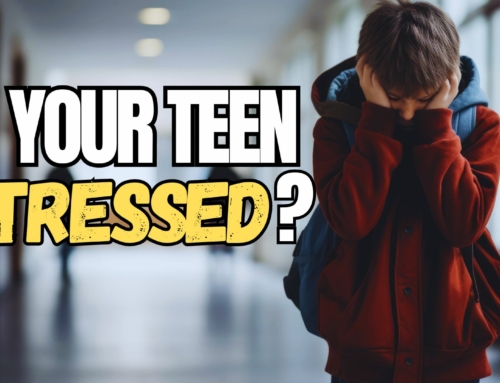How to Enhance Critical Thinking in Teenagers: A Guide for Nurturing Thoughtful Minds
Introduction
Hey there! If you’re a parent, mentor, or someone who plays a pivotal role in a teen’s life, you’ve probably noticed how the world today demands a lot more from our youngsters than ever before. In this whirlwind of information, opinions, and potential distractions, one skill stands out as crucial for navigating the complexities of modern life: critical thinking.
But what exactly does it mean for a teenager to be a critical thinker? It’s not just about solving complex mathematical problems or debating well—it’s about cultivating the ability to question, analyze, and evaluate the world around them. It’s about making informed decisions, not just in school, but in their everyday interactions and long-term choices. Imagine a teenager navigating the tricky waters of social media, peer pressure, or planning their career. That’s where critical thinking comes into play!
Now, you might be wondering how you can help the teens in your life develop this essential skill. Well, you’re in the right place! I’m going to walk you through what critical thinking really involves and share some straightforward, effective ways to nurture this ability in teenagers. We’ll explore the essential skills involved, dive into some fun and practical tools and resources, and give you tips on creating an environment that celebrates and encourages thoughtful reasoning.
Whether your teen is just entering those transformative years or standing on the brink of adulthood, enhancing their critical thinking skills is a gift that will keep on giving. It prepares them for real-world challenges, bolsters their academic and professional prospects, and most importantly, it empowers them to make decisions that reflect their truest selves.
So, let’s get started on this journey together, helping our teens turn every challenge into an opportunity to learn, grow, and think critically!
Understanding Critical Thinking in Teenagers
What is Critical Thinking?
Imagine you’re navigating a maze; every turn and twist offers new paths and choices. Similarly, life constantly presents various scenarios where decision-making isn’t just about choosing the shortest route but the wisest one. For teenagers, critical thinking is that essential skill that helps them analyze information, reflect on different perspectives, and determine the best course of action. It involves a series of abilities from questioning the status quo to examining the validity of sources and reasoning out the best possible solutions.
Critical thinking is not a mere academic requirement; it’s a life skill. It equips teenagers with the mindset to tackle complex problems, innovate, and think independently in both personal and academic pursuits. This skill becomes their compass in a sea of misinformation and half-truths, enabling them to navigate the world with confidence and discernment.
Why is Critical Thinking Crucial for Teenagers?
In today’s digital age, teenagers are bombarded with an overwhelming amount of information. Social media, news outlets, and even peer conversations overflow with data that isn’t always accurate or beneficial. Here, critical thinking comes to the rescue. It helps teens not just consume information, but scrutinize it, question its authenticity, and understand its implications. By fostering critical thinking, we empower teens to become not just passive receivers of information but active, informed participants in their communities.
Moreover, critical thinking aids in academic excellence and is instrumental in effective problem-solving. It encourages curiosity and a love for learning, traits that are invaluable in higher education and beyond. For instance, when teens practice forming their own opinions based on analysis rather than adopting popular views, they stand out as leaders and innovators.
The Challenges Teens Face in Developing Critical Thinking
Despite its importance, developing critical thinking isn’t always a straightforward path for many teenagers. The traditional educational systems often prioritize rote learning and test scores over critical analysis and creative thinking. This can stifle young minds that otherwise could have flourished through exploration and questioning.
Additionally, the fear of making mistakes or being different can hinder teenagers from stepping out of their comfort zones to think critically. Peer pressure to conform can also suppress their desire to question and challenge the norm.
Recognizing these challenges is the first step towards addressing them. As parents and mentors, our role is to create safe, supportive environments where questioning is encouraged, and mistakes are seen as opportunities for growth.
Key Skills of Critical Thinking
Critical thinking isn’t just one skill; it’s a constellation of abilities that together enable teenagers to navigate life’s complexities with clarity and confidence. Let’s break down some of the fundamental skills that are part of this critical toolkit.
Analyzing Information
At the core of critical thinking lies the ability to analyze information. This means not taking data at face value but breaking it down to understand its origins, context, and implications. For teenagers, this skill is vital in academics and everyday life. Whether it’s interpreting a historical event or evaluating a social media post, the ability to dissect information helps teens not only understand the material but also connect it to broader themes and concepts.
To develop this skill, encourage teens to ask questions like: “What is the source of this information?” “What is the intention behind this message?” and “How does this align with what I already know?” These questions prompt deeper thinking and help teens become more discerning consumers of information.
Problem Solving Techniques
Critical thinking is synonymous with problem-solving. It’s about looking at problems not just as obstacles but as opportunities to apply what one knows in innovative ways. Effective problem-solving involves identifying the issue, brainstorming potential solutions, evaluating these solutions, and then implementing the most viable one. For teenagers, enhancing this skill means practicing these steps in real scenarios—from academic projects to personal dilemmas.
Engage teens in exercises that challenge their reasoning and require them to devise multiple solutions. This could be through puzzles, strategy games, or real-life situations that call for careful deliberation and decision-making.
Decision Making in Everyday Life
Every day, teenagers face decisions that impact their current and future selves. Critical thinking enhances their decision-making process by enabling them to weigh options, consider potential outcomes, and make choices that align with their values and goals. It’s about empowering them to make informed decisions, whether it’s choosing which subjects to study, managing their time effectively, or navigating relationships.
To strengthen this skill, involve teens in their own decision-making processes. Discuss the pros and cons of various choices, encourage them to reflect on past decisions and their outcomes, and allow them to take responsibility for their choices. This practice not only boosts their confidence but also reinforces the practical application of critical thinking in their daily lives.
How Parents Can Support Critical Thinking
Parental support is crucial in cultivating an environment that encourages critical thinking. Here’s how you can actively foster these essential skills in your teenager:
Encouraging Open Communication
Open communication forms the backbone of critical thinking. By encouraging dialogue that involves asking questions, expressing thoughts freely, and debating ideas without judgment, parents can help teens develop the confidence to think independently. Make it a practice to discuss various topics at the dinner table—from news events to personal experiences. This not only keeps everyone informed but also helps teens articulate their thoughts and consider different perspectives.
Providing Thought-Provoking Challenges
Challenges stimulate the mind. They push teenagers to step out of their comfort zones and use their critical faculties. Parents can introduce thought-provoking challenges by providing books, games, and activities that require deeper analysis and strategic thinking. For example, solving complex puzzles, participating in debates, or undertaking DIY projects that require planning and execution can enhance analytical skills and problem-solving abilities.
Fostering an Environment of Inquiry
Curiosity is the fuel for critical thinking. Creating a home environment where questions are encouraged and every query is valued promotes an investigative mindset. When a teen questions something, rather than providing immediate answers, encourage them to research and come up with explanations. This method helps in developing their ability to seek information actively and not passively accept facts.
Educational Tools and Resources
In this digital age, numerous tools and resources can assist in developing critical thinking skills:
-
Books and Games: Introduce your teen to books that challenge their worldview and expand their understanding. Strategy games like chess or brain-teasers like sudoku also promote logical thinking and strategy planning.
-
Online Courses and Workshops: Many platforms offer courses in logic, philosophy, and other subjects that enhance critical thinking. Encourage your teen to enroll in these programs to gain new insights and skills.
-
Apps and Tools: Utilize educational apps designed to enhance cognitive skills through exercises that improve memory, problem-solving, and analytical skills.
By integrating these practices and resources into your teen’s daily routine, you help them build strong critical thinking skills that will serve them well throughout their lives.
Real-Life Applications of Critical Thinking
Critical thinking is more than an academic skill—it’s a vital component of everyday life. Let’s explore how teenagers can apply these skills in various real-life contexts to make informed decisions and navigate challenges effectively.
Navigating Social Situations
Social interactions often require quick thinking and good judgment. Teenagers equipped with critical thinking skills can better analyze social cues, understand different perspectives, and respond appropriately. This capability is particularly useful in resolving conflicts, understanding peer pressure, and making decisions that align with their values rather than simply following the crowd. Encourage teens to reflect on their social interactions: What went well? What could they have done differently? This reflection fosters a deeper understanding of themselves and others.
Making Informed Choices About Media
In today’s digital world, teens are bombarded with a vast array of media messages, many of which may be misleading or biased. Critical thinking helps them discern the reliability of sources, understand underlying messages, and make informed choices about what to believe and share. Teach teens to question the credibility of information: Who is the author? What is the intention behind the message? Are there any biases that might affect the content’s accuracy? This skill is crucial in an era of “fake news” and widespread misinformation.
Planning for the Future and Setting Goals
Critical thinking is essential when planning for the future, whether choosing which courses to take, exploring career options, or setting personal goals. It allows teens to weigh their options carefully, consider potential outcomes, and make decisions that are best suited to their long-term aspirations. Help teens to set SMART (Specific, Measurable, Achievable, Relevant, Time-bound) goals and to revisit and adjust these goals as needed. This process teaches them to plan strategically and adaptively, laying a strong foundation for personal and professional success.
Building a Culture of Critical Thinking at Home
Creating a home environment that promotes critical thinking is about more than just academic success—it’s about preparing teens for the complexities of the real world. Here are some strategies to integrate into daily family life:
-
Daily Practices to Encourage Thoughtfulness: Encourage habits that promote mindfulness and reflection, such as journaling or discussing current events. These practices help teens develop a habit of thoughtful consideration and self-reflection.
-
The Role of Mistakes in Learning: Emphasize that mistakes are a natural part of learning and growth. Encourage teens to analyze their mistakes and learn from them, rather than fearing failure. This perspective helps build resilience and a willingness to experiment and take calculated risks.
-
Celebrating Critical Thinking Successes: Acknowledge and celebrate when teens demonstrate effective critical thinking. Whether it’s making a tough decision, solving a complex problem, or changing their opinion based on new information, recognizing these moments reinforces the value of thinking critically.
Conclusion: Empowering Teenagers Through Critical Thinking
As we’ve explored throughout this guide, critical thinking is an indispensable skill that empowers teenagers to navigate the complexities of modern life with confidence and wisdom. By encouraging these skills in our teens, we’re not just helping them excel academically; we’re also setting them up for success in their personal and professional lives. It’s about fostering a mindset that questions, analyzes, and innovates.
From understanding what critical thinking really is to seeing its impact in real-life scenarios, it’s clear that these skills are foundational for making informed decisions and facing challenges with resilience. Parents play a crucial role in this development process by providing supportive environments, engaging in open communication, and introducing educational tools that stimulate thoughtful analysis.
Action Steps for Parents:
-
Encourage open discussions at home about various topics, including current events and personal experiences, to normalize critical thinking.
-
Introduce challenges and puzzles that require thoughtful consideration and strategy, which will help sharpen your teen’s analytical skills.
-
Leverage technology wisely by using apps and online resources designed to enhance cognitive skills and encourage reflective thinking.
-
Celebrate your teen’s critical thinking milestones, whether it’s overcoming a difficult problem, making a tough decision, or simply asking insightful questions.








